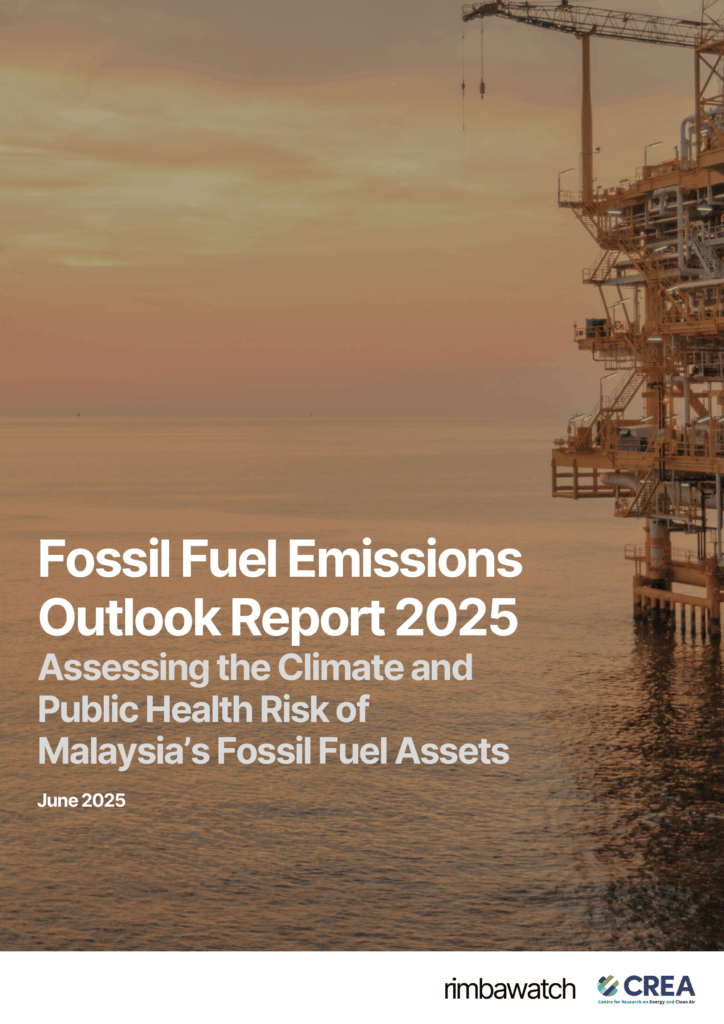This report, co-authored by environmental think-tank RimbaWatch and CREA assesses the emissions lock-in risk associated with Malaysia’s fossil fuel assets. Malaysia’s economy is deeply intertwined with fossil fuel production, with PETRONAS, the national oil company, playing a pivotal role. However, Malaysia’s heavy reliance on fossil fuels raises significant climate risks amid global efforts to limit the global temperature rise to 1.5°C.
Malaysia holds approximately 9.84 billion barrels of oil equivalent (boe) in committed recoverable fossil fuel reserves, predominantly fossil gas. These reserves are concentrated in Sarawak, with key fields such as Kasawari, Kertang, and Lang-Lebah holding over half of total reserves. The continued extraction and use of these assets would lock in an estimated 4.15 billion tonnes of CO2 equivalent (tCO₂e) emissions to the global atmosphere.
Methane emissions, a potent greenhouse gas, are another critical concern. The committed reserves are projected to lock-in 10.9 million tonnes of methane (mtCH₄), equivalent to about 9% of global fossil fuel-related methane emissions in 2023. Methane has a far greater short-term global warming potential than CO₂, exacerbating climate risks significantly. Through an analysis into the public health impacts of methane emissions, it is estimated that over 8,200 premature deaths will occur globally as a direct consequence of the extraction of these reserves.
Malaysia’s energy transition plans, such as the National Energy Transition Roadmap (NETR) and PETRONAS’s Net Zero Carbon Emissions Pathway, are largely insufficient and counterproductive towards addressing these risks. The NETR envisions fossil gas becoming an even larger share of Malaysia’s energy mix by 2050, while renewable energy growth remains marginal. PETRONAS’s climate strategies exclude Scope 3 emissions (representing 80% of fossil fuel emissions) and focus on carbon capture and storage (CCUS) technologies, which risk enabling further fossil fuel expansion rather than generating meaningful emissions reductions.
This report stresses that Malaysia’s fossil fuel industry is a significant contributor to global anthropogenic emissions, both historically and currently. Despite rhetoric downplaying Malaysia’s responsibility, climate science is clear: fossil fuel expansion is inconsistent with a global pathway to limit the temperature rise to 1.5°C, and large producers including Malaysia must urgently reduce fossil fuel production in line with this.
